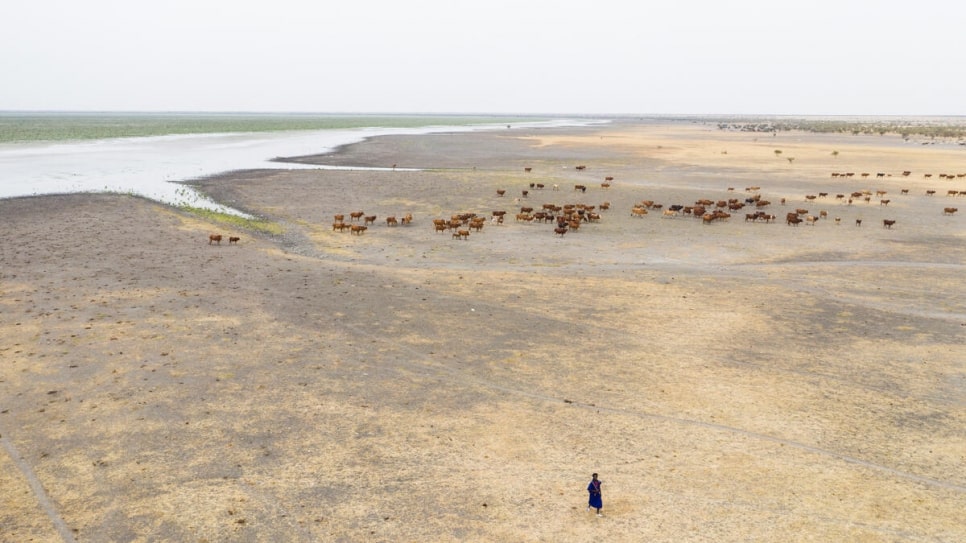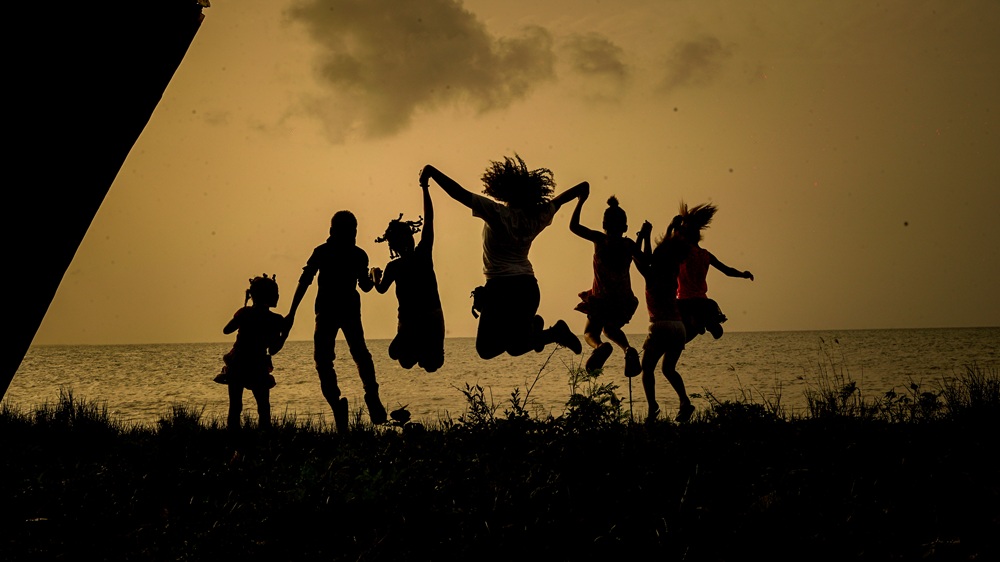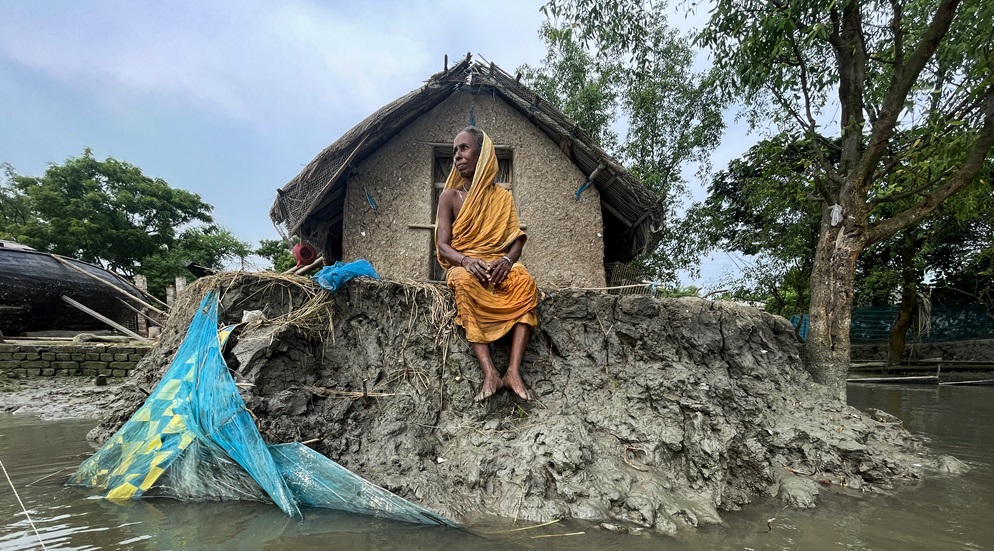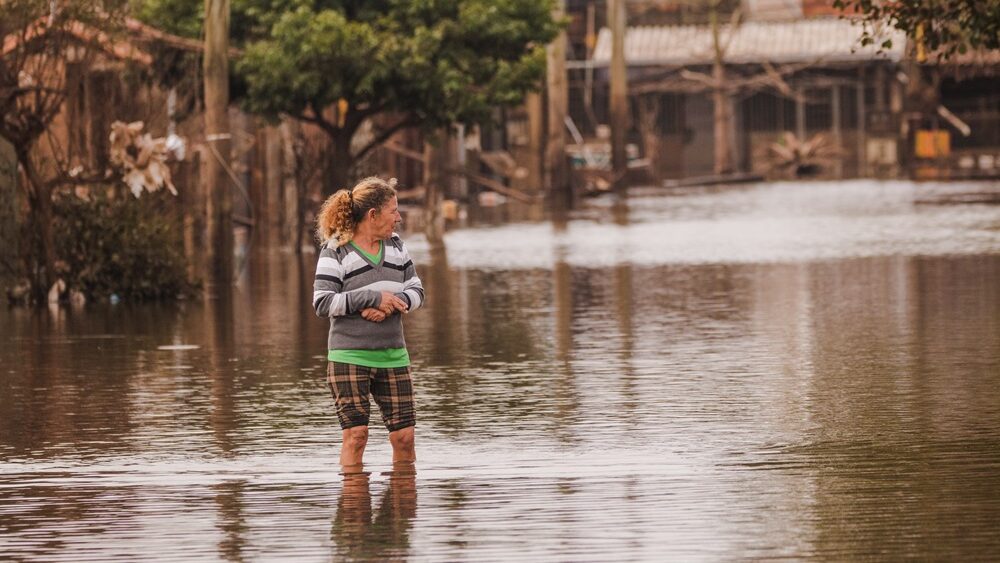Where Will We Go if this Lake Dries Up? A Case-Study from the Sahel
This article by Maria Stavropoulou and Andrew Harper was originally published in the Forced Migration Review (FMR) Issue 69, in March 2022.
Much like its Sahelian neighbours, Mauritania faces a daunting array of challenges triggered by the impacts of climate change. There is much that can be achieved if stakeholders commit to swift and comprehensive action in response.
The climate crisis in the Sahel is real. Hotter temperatures, unpredictable rains, floods, drought and desertification increasingly threaten already vulnerable countries and communities. These changes are also fuelling inter-communal tensions.
People whose subsistence depended on fishing in Lake Faguibine in Mali, for instance, had to abandon their homelands and livelihoods a few years ago because the lake had dried up. They moved southwards but met hostility from herding communities, who were themselves already struggling to access dwindling water and pasture for their livestock. In these remote areas of the country, the State is hardly present; it is unable to help mediate between communities under pressure and maintain the peace. Inter-community conflict has flared and the increased presence of non-State armed groups has added to increasing insecurity.
I’m worried the lake will dry out soon. I don’t know what we will do.” – Yahya Koronio Kona
Many Malian fisherfolk used to cross the border to the region of Hodh Chargui in Mauritania for several months a year, and had been doing so for decades. In the last few years, they have gradually set up new homes close to the lakes, and have no intention of returning to Mali in the immediate future. But here too the local communities – for whom the lake is a vital water source for their cattle – have become worried. As tensions have risen, the regional and local authorities have intervened and led mediation efforts, restoring – at least temporarily – the peaceful co-existence between the populations. Lack of rain, however, is now exacerbating the situation. Locals fear the lake will lose its fish. Over-fishing has already resulted in the loss of most of the migratory birds that used to visit. The ecosystem is dangerously out of balance.
Mauritania is a generous host to refugees and has been so for decades. But the combination of climate change-linked stress on natural resources, continuing insecurity in neighbouring Mali, and the impact of new arrivals on already fragile ecosystems is stretching local coping capacities.
Addressing environmental impacts and needs
Solutions will be found only if everyone recognises how high the stakes are, not only in this corner of Mauritania but also in the broader region. The approaches proposed here for Mauritania are certainly relevant for many other contexts and countries.
Increased awareness of and respect for local regulations that promote sustainable fishing practices will need to be accompanied by support to refugees and host communities to develop additional or alternative means of subsistence. Local communities and refugees will need to work together to address and reconcile their concerns and protect the land, lake and livelihoods on which they all depend. The regional and local authorities also need support and additional capacity to maintain peace and security and to boost economic development, and Mauritania’s Ministry of Environment and Durable Development will need additional capacity in order to fully implement its initiatives to preserve and restore the lakes.
Part of the solution may lie with the African Union-led Great Green Wall initiative that focuses on the restoration and sustainable management of land across the Sahelian belt. As an integrated sustainable development project – including, and going well beyond, the planting of trees – it promises to help improve the lives of thousands of people.
Both displaced and host communities need to strengthen cooperation to protect the environment through shared care and governance of its precious resources. In addition to developing and maintaining green belts there will need to be a focus on reforestation and developing special zones to meet the timber needs of the population, sustainable energy and energy alternatives to charcoal to limit deforestation and greenhouse gas emissions, and the adaptation of routes for pastoralists and their livestock.
To strengthen communities’ food security, productive and sustainable fishing, agriculture and livestock production needs to be supported; this should include enhancing access to veterinary services, fishery experts and pest management, and promoting market gardening. Water management is increasingly critical, and requires improved water storage systems, agreements on access to water sources, and promotion of efficient irrigation techniques. And communities’ capacity to market their products will also need to be improved, such as through the establishment of cooperatives, and training in financial education and business management.
Furthermore, shared governance mechanisms would need to be created and maintained, and mediation mechanisms developed; a sense of common purpose can offer peace dividends that go well beyond the shared governance of natural resources. Education for school pupils about the environment would be essential to ensuring that future generations understand the issues at stake.
Rapidly scaled-up and accessible support – including additional finance, technical assistance and capacity strengthening for local and national institutions – from the international community is, however, a necessary precursor for such progress in the most climate-vulnerable countries and communities. Joint programming for multi-year assistance by donors and partners must be based on listening carefully to the needs of people on the frontline of the climate crisis, together with a willingness to adjust and re-prioritise contributions accordingly. This should not be an exercise in ‘greenwashing’ of previous loans and commitments. Displaced and host communities, supported by regional and local authorities, are already playing an essential role but this local action must be enabled and urgently supported. There is no time to waste.
Cover photo: © UNHCR | Colin Delfosse





